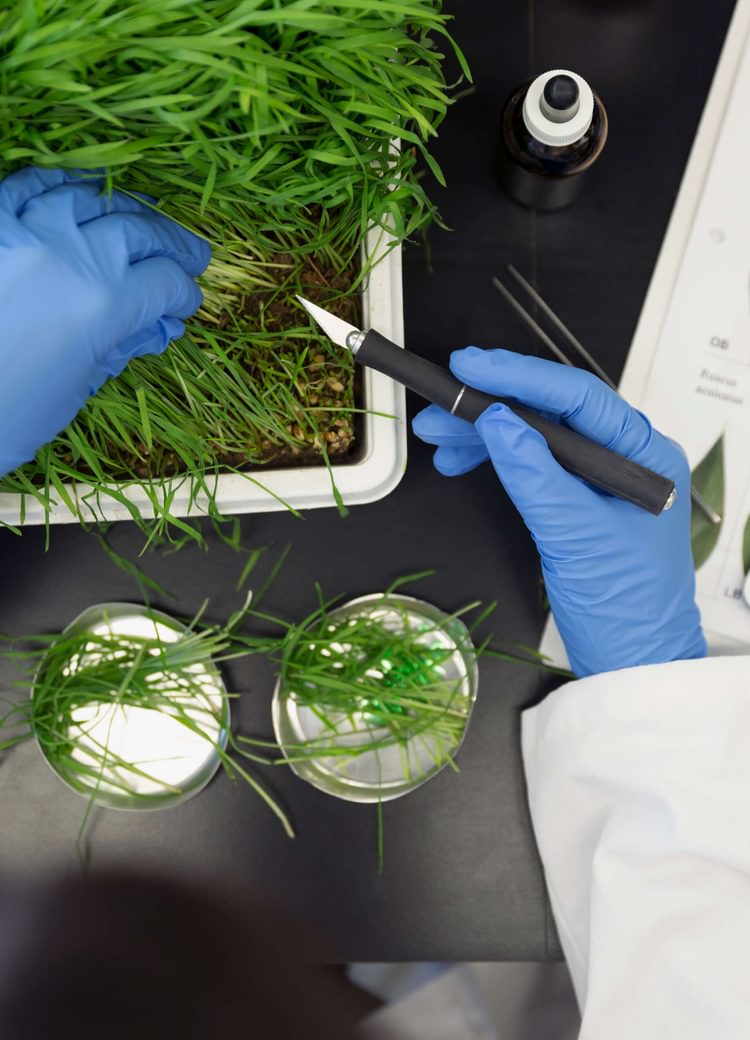
Why Choose a Biology Major with a Field/Environmental Biology Emphasis at ËżąĎĘÓƵ?
If you're passionate about nature, ecosystems, and environmental stewardship, ËżąĎĘÓƵ’s Biology major with a Field/Environmental Biology emphasis offers the perfect path. This program focuses on the study of organisms in their natural habitats and the interactions that shape our environment.
Students gain hands-on experience through fieldwork, ecological surveys, and lab-based research in areas such as wildlife biology, plant science, conservation, and environmental policy. With access to regional natural areas and dedicated faculty mentors, students are encouraged to explore real-world environmental challenges and develop practical solutions.
This emphasis prepares graduates for careers in environmental consulting, conservation, wildlife management, park services, or graduate study in ecology or environmental science. Whether you're working outdoors or analyzing data in a lab, you'll be making a direct impact on the world around you.
At ËżąĎĘÓƵ, you’ll turn your love for the outdoors into a career that helps protect and preserve the natural world.
What You’ll Learn
The Field/Environmental Biology emphasis within the Biology major at ËżąĎĘÓƵ is ideal for students passionate about ecology, conservation, wildlife biology, and environmental science. This track combines classroom learning with extensive field and lab work to equip students with the skills needed for careers in natural resource management, environmental education, or ecological research.
As a Biology major with a Field/Environmental Biology emphasis, you will:
Study ecosystems, population dynamics, and biodiversity through courses in ecology, conservation biology, and environmental physiology.
Learn how organisms interact with their environments and adapt physiologically and behaviorally to diverse ecosystems.
Conduct field research and lab investigations in courses such as ecology, comparative morphology, and environmental physiology.
Analyze environmental policy and ethical issues in science through interdisciplinary coursework such as Environmental Ethics.
Explore specialized topics in wildlife biology with recommended electives in ornithology, herpetology, ichthyology, and mammalogy.
Prepare for graduate study or immediate entry into environmental and conservation-related professions.
Career Possibilities
Biological Technician
Assist scientists in laboratories by preparing experiments, analyzing samples, and maintaining lab equipment. Common in medical research, pharmaceutical development, and biotechnology.
- Typical Education: Bachelor’s degree
- Median Salary: $52,000
- Job Outlook: 7% growth (2023–2033)
Chemical Technician
Support chemists and engineers by conducting experiments and quality control in labs and manufacturing facilities.
- Typical Education: Associate or bachelor’s degree
- Median Salary: $57,790
- Job Outlook: 6% growth (2023–2033)
Forensic Science Technician
Collect, analyze, and document evidence from crime scenes for use in criminal investigations.
- Typical Education: Bachelor’s degree
- Median Salary: $67,440
- Job Outlook: 13% growth (2023–2033)
Environmental Scientist
Monitor environmental conditions and develop solutions to environmental problems, often working in public policy or industry compliance.
- Typical Education: Bachelor’s degree
- Median Salary: $80,060
- Job Outlook: 6% growth (2023–2033)
Meet the Faculty and Staff
Please feel free to reach out to any of our faculty or staff with questions. We're here to help.
See All Faculty and StaffChristopher Burket
Division of Natural Sciences and Mathematics Chair ~ Professor of Biology
(731) 352-4075burketc@bethelu.eduJohn Nelson
Professor of Biology
(731) 352-4073nelsonj@bethelu.eduKathleen Baczynski
Professor of Biology
(731) 352-6355baczynskik@bethelu.edu
Related Degrees and Programs
If you’re interested in this degree or program, here are others you might find intriguing.
See All



